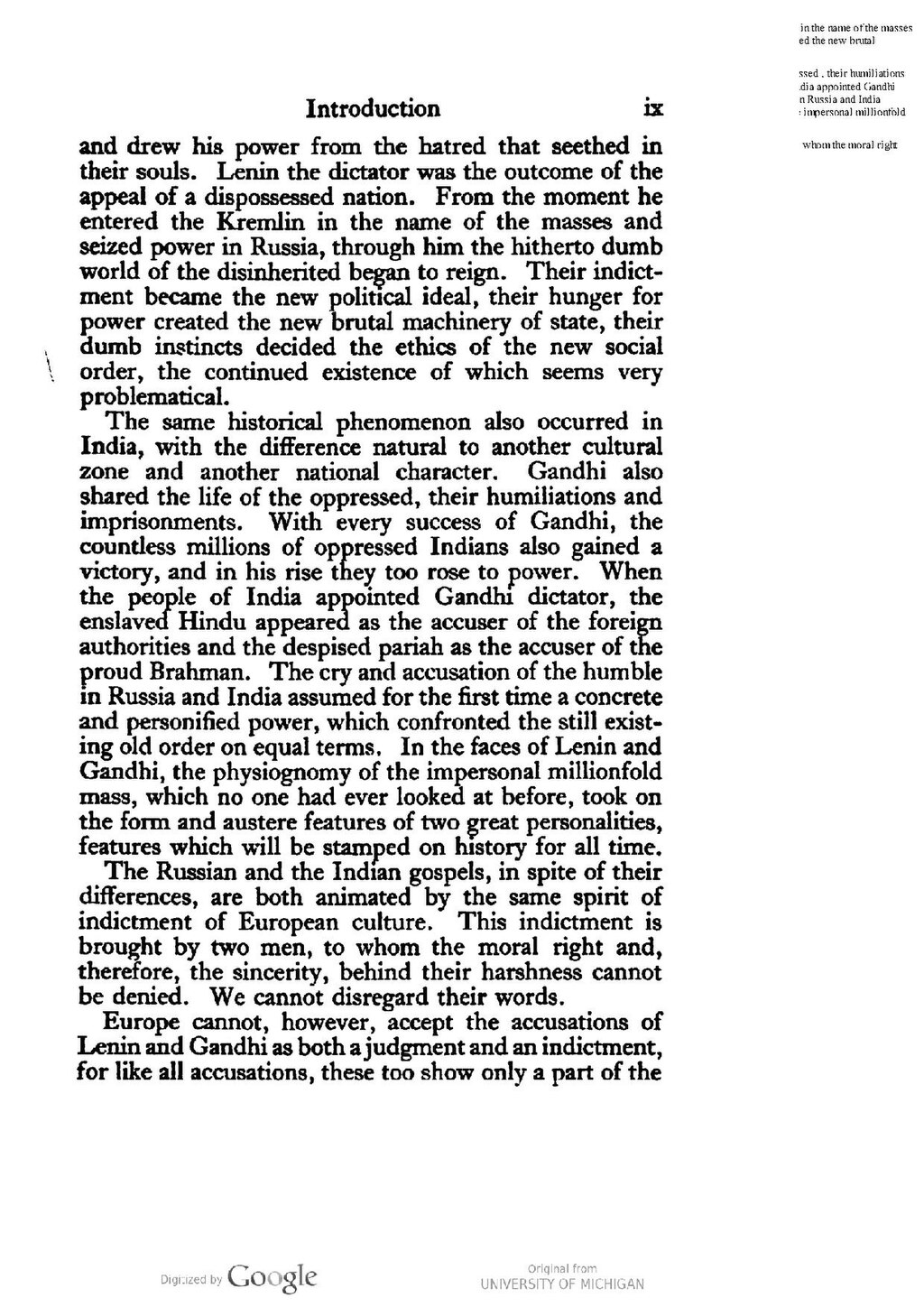and drew his power from the hatred that seethed in their souls. Lenin the dictator was the outcome of the appeal of a dispossessed nation. From the moment he entered the Kremlin in the name of the masses and seized power in Russia, through him the hitherto dumb world of the disinherited began to reign. Their indictment became the new political ideal, their hunger for power created the new brutal machinery of state, their dumb instincts decided the ethics of the new social order, the continued existence of which seems very problematical.
The same historical phenomenon also occurred in India, with the difference natural to another cultural zone and another national character. Gandhi also shared the life of the oppressed, their humiliations and imprisonments. With every success of Gandhi, the countless millions of oppressed Indians also gained a victory, and in his rise they too rose to power. When the people of India appointed Gandhi dictator, the enslaved Hindu appeared as the accuser of the authorities and the despised pariah as the accuser of the proud Brahman. The cry and accusation of the humble in Russia and India assumed for the first time a concrete and personified power, which confronted the still existing old order on equal terms, In the faces of Lenin and Gandhi, the physiognomy of the impersonal millionfold mass, which no one had ever looked at before, took on the form and austere features of two great personalities, features which will be stamped on history for all time.
The Russian and the Indian gospels, in spite of their differences, are both animated by the same spirit of indictment of European culture. This indictment is brought by two men, to whom the moral right and, therefore, the sincerity, behind their harshness cannot be denied. We cannot disregard their words.
Europe cannot, however, accept the accusations of Lenin and Gandhi as both a judgment and an indictment, for like all accusations, these too show only a part of the
